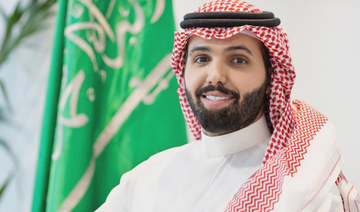RIYADH: The Ministry of Human Resources and Social Development (HRSD) will establish “five model units” for the elderly in the main regions of the Kingdom, according to HRSD Minister Ahmed Al-Rajhi.
This announcement came during a virtual meeting recently held by Al-Rajhi with social affairs experts, journalists who specialize in social development, and a group of ministry leaders.
“The ministry is working to provide care and social protection for citizens, including the elderly, people with disabilities and orphans, and to protect the rights of children, women, and juveniles,” Al-Rajhi told the attendees, adding that the ministry is working “to develop many systems that contribute to achieving this, such as protecting children from all forms of abuse, and ensuring their rights and providing them with the necessary care.”
Al-Rajhi stressed the importance of the social development sector, which “focuses on issues that affect human existence, achieve for people various means of social welfare, and empower individuals with opportunities in various sectors.”
He added that the ministry’s Community Development Agency is working to empower the nonprofit sector and the cooperative sectors and direct them to development work.
Since April 2016, the number of non-profit sector organizations in Saudi Arabia has increased by 164 percent, reaching more than 3,400 institutions, 69 percent of which are specialized.
“The sector has become more mature and has a deeper impact,” said Al-Rajhi.
Al-Rajhi said that more than three million people have benefited from the National Donations Platform since its establishment in April 2020. He also said that in 2021, more than 489,000 Saudis have volunteered to support charitable organizations, providing a huge variety of services.
He added that the ministry has also established a national indicator to measure giving and its results, which “showed that the percentage of those who donated once during a year reached 80 percent of the Saudi community, which indicates the charity and solidarity of this community.”
The official spokesman at the ministry, Saad Al-Hammad, told Arab News: “The ideas and visions presented will be studied during the upcoming period to benefit from them in launching projects and initiatives that positively impact the public scene."
He added that the ministry seeks, through holding these meetings, to enhance effective communication with specialists in various disciplines to discuss initiatives, ministerial decisions, challenges and societal requirements.
He pointed out that the virtual meeting was held to enhance the concept of social development and the services and achievements of the ministry and to emphasize issues that affect Saudis.
“The ministry has presented many events, programs and activities that highlight the role of social development and help in increasing organization and development,” said Hamad M. Al-Otaibi, chairman of the board of directors at the Preventive Youth Awareness Association.
The association improves the capabilities and skills of young people by providing programs and events that Saudi youth need, and raising awareness around risks and behavioral dangers.
“It is noticeable that the failure of some modern associations and the lack of motivation among those in charge of them needs a review to improve and develop and find out the defect,” Al-Otaibi added.
He suggested an expansion to the National Platform for Charitable Work via accepting emerging associations interested in the developmental, awareness, preventive and development aspects of charity work.





























